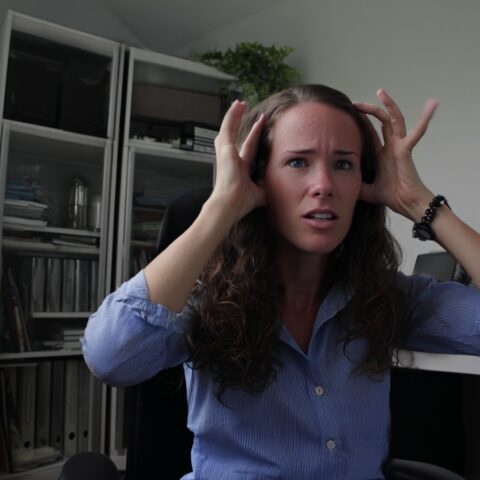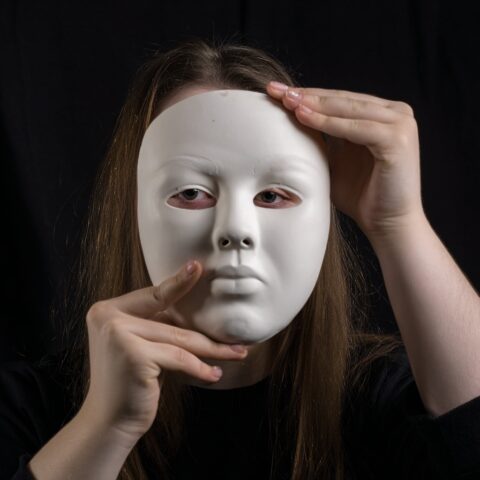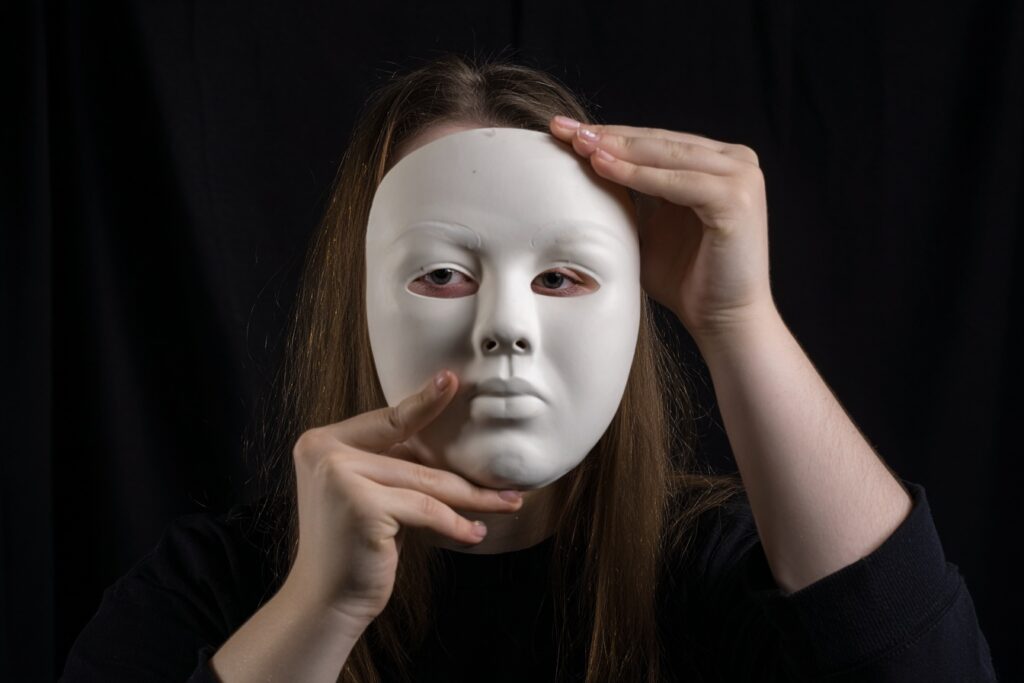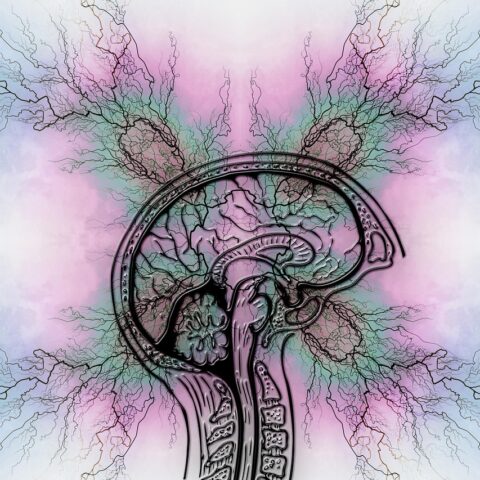Think you might be neurodivergent? This neurodivergence quiz is a self-assessment to help guide your next steps — ADHD, autism, sensory issues, and more. Not a diagnosis, but a direction.
Take this Neurodivergence Quiz to point you in the right direction.
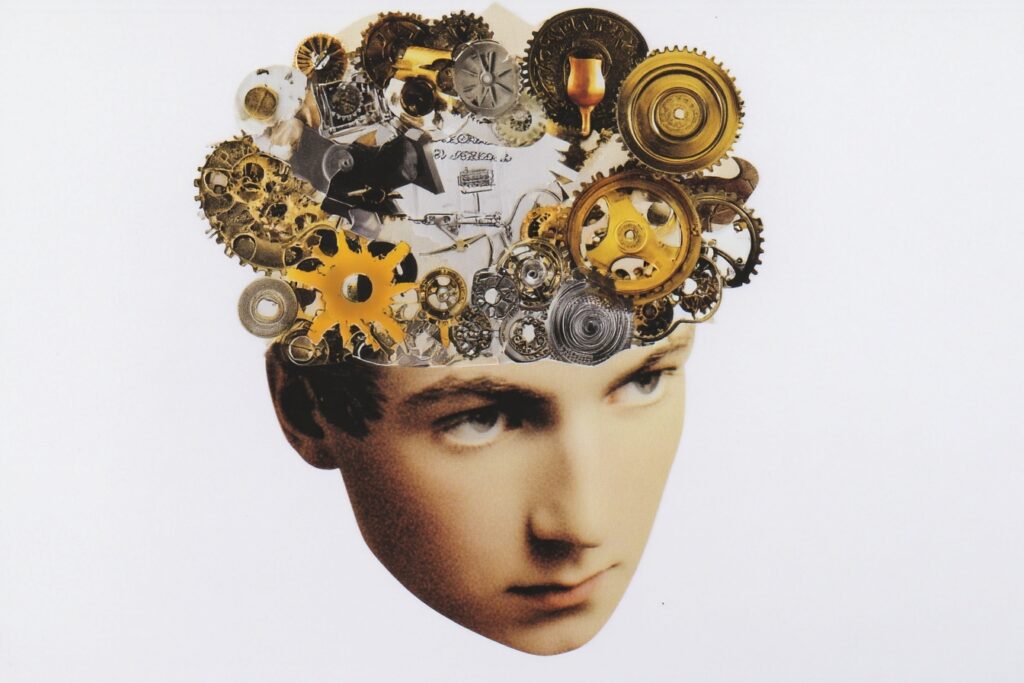
I spent years thinking I was just “bad at life.”
Disorganized. Overwhelmed. Too sensitive. Emotionally volatile. Chronically late. Constantly zoning out.
I never once thought: “Maybe I’m neurodivergent.”
Why? Because no one told me what that even meant. And the quizzes I found? Either clinical and cold, or Buzzfeed-style chaos.
That’s why I created this: a neurodivergence quiz written by someone who actually gets it.
It’s not a diagnosis.
But it is a flashlight — to help you start seeing your patterns, without shame or confusion.
Table of Contents
⚠️ Important Disclaimer
This quiz is not a medical diagnosis. It’s a self-reflection tool to help you identify common traits associated with ADHD, autism, sensory processing differences, and other forms of neurodivergence. If it resonates with you, consider exploring further with a therapist, psychologist, or neurodivergent-affirming provider.
For clinical assessments, you can look into resources from Psychology Today or explore formal diagnostic frameworks from CHADD for ADHD and the Autism Research Institute for autism spectrum information.
🧠 What Is This Quiz Looking At?
This quiz covers five major domains where neurodivergent traits tend to show up:
- Executive Function (ADHD traits)
- Social & Emotional Processing (common in autism and ADHD)
- Sensory Processing Differences
- Cognitive Style & Communication
- Masking, Burnout, and Identity Dissociation
Each section is written in plain language, from lived experience — not sterile diagnostic jargon.
📝 The Neurodivergence Self-Assessment Quiz
For each statement, mark it:
- ✅ Often true
- 🔸 Sometimes true
- ❌ Rarely or never true
🔹 1. Executive Function (ADHD-style traits)
- I procrastinate important tasks until they become crises
- I often forget simple steps in routines
- I get “stuck” trying to start or finish things, even when I want to
- I hyper-focus on random things but can’t do what’s “urgent”
- My productivity swings wildly from superhuman to nonexistent
- I miss deadlines or appointments because time feels unreal
🔹 2. Emotional + Social Regulation
- I overthink social interactions for hours (or days) afterward
- I feel emotionally overwhelmed often — sometimes by “small” things
- I either feel too much or nothing at all
- I get sensory-emotional hangovers after social events
- I mask my true thoughts or behavior to “seem normal”
🔹 3. Sensory Processing
- Certain sounds, lights, or textures feel unbearable
- I notice things other people don’t (tags, buzzing lights, background noise)
- I have strong reactions to smell, taste, or touch
- I feel physical discomfort in crowds or chaotic environments
- I seek out sensory comfort (fidget toys, repetitive motions, weighted blankets)
🔹 4. Cognitive Patterns + Communication
- I speak in metaphors, analogies, or long-winded explanations
- I interrupt without meaning to
- I zone out mid-conversation
- I feel frustrated when people miss the deeper meaning in what I’m saying
- I get intensely interested in specific topics and deep-dive for hours
🔹 5. Burnout, Masking, and Identity Dissociation
- I feel like I’m pretending to be a “functional adult” most of the time
- I crash after periods of “holding it together”
- I forget what I actually enjoy because I’m so focused on what’s expected
- I feel disconnected from myself when I’m around people
- I’ve been called “too sensitive,” “lazy,” “emotional,” or “intense”
🧾 What Do My Results Mean?
There’s no score here. Just patterns.
If you marked:
- ✅ Often true to 10+ total statements across sections — you may benefit from exploring ADHD, autism, or sensory processing further
- ✅ Often true in just one or two categories — that area may be worth reflecting on or discussing with a professional
- 🔸 “Sometimes true” all across the board — you might have milder traits, or be in burnout/freeze mode
- ❌ “Rarely true” — that’s valid too. Maybe this framework doesn’t fit you. That’s okay.
Remember: neurodivergence is a spectrum, not a binary.
🔗 High-Authority Resources If You Want to Go Deeper
If this quiz resonated and you want to dig further, here are reliable starting points:
- ADDitude Magazine’s ADHD Self-Test for Adults — A structured ADHD screening tool with clinical relevance
- Autism Spectrum Quotient (AQ) Test by Wired/Simon Baron-Cohen — A widely referenced questionnaire for identifying autism traits
- Sensory Health Resources from STAR Institute — Gold standard in understanding Sensory Processing Disorder
💬 Jenny Mirah on Taking Quizzes (and Breaking Down Crying Afterward)

I’ve taken a lot of self-assessment quizzes. And I’ll be honest — more than once, I burst into tears at the end.
Not because I was scared. But because I felt seen for the first time.
When I started noticing neurodivergent traits in myself, I didn’t even have the words. I just knew I was exhausted, sensitive, inconsistent, and emotionally intense in ways other people weren’t.
So if this quiz hit you in the gut — if you’re feeling overwhelmed, exposed, or strangely relieved — that’s okay. That’s part of it.
You don’t need to have it all figured out. You just took a step closer to yourself.
That’s everything.
❓ FAQ: 12 Honest Questions About the Neurodivergence Quiz
1. Is this quiz a diagnosis?
No. This is a self-assessment. It’s designed to highlight potential patterns — not to replace a formal evaluation.
2. What should I do if most of this felt true?
Start reading more about neurodivergence from affirming sources, and consider speaking with a therapist who specializes in ADHD, autism, or sensory processing.
3. Can I relate to neurodivergent traits without being ND?
Yes. Some people relate due to trauma, stress, or mental health. But for many, it’s a sign of underlying neurodivergence that was never recognized.
4. Can I be neurodivergent without a diagnosis?
Yes. Many people — especially women, people of color, and low-income folks — go undiagnosed due to bias in the system. Self-identification is valid.
5. What’s the difference between ADHD and autism?
They overlap in some areas but are distinct conditions. ADHD centers on attention, regulation, and impulse control. Autism is more about sensory processing, social cognition, and communication style.
6. Why is masking part of the quiz?
Because masking hides core traits. You might be ND but have learned to suppress your symptoms to “pass” — leading to burnout, confusion, and disconnection.
7. What does executive dysfunction feel like?
Like wanting to do something but being unable to start — even when the consequences are real. It’s not laziness. It’s neurological.
8. I relate to some sensory stuff, but not all. Does that count?
Absolutely. Sensory traits vary widely. You might be sound-sensitive but texture-tolerant, or vice versa.
9. Should I share this quiz with someone else?
Yes — especially if you suspect someone you love is neurodivergent and doesn’t have the language yet. Just be gentle. This stuff hits deep.
10. Can this quiz help explain why I struggle at work or school?
Definitely. Many neurodivergent people thrive in creative or flexible environments but struggle in traditional systems.
11. What if I scored high but still doubt myself?
That’s normal. Imposter syndrome is real — especially in undiagnosed ND people. Don’t let doubt erase your lived experience.
12. Where do I go from here?
Start slow. Journal your thoughts. Read stories from other ND folks. If it still resonates, look into clinical assessment or support groups.
🐐 About ADHD Goat
ADHD Goat is a messy, honest blog for neurodivergent humans and the people who love them. We write about ADHD, autism, masking, identity, burnout, and all the weird stuff your brain does at 3AM. If you’ve ever thought, “Why am I like this?” — you’re in the right place.
✍️ About the Author
Jenny Mirah is neurodivergent, deeply sensitive, and frequently overwhelmed by her own thoughts. She created ADHD Goat to stop pretending and start talking about the messy beauty of brains that don’t work the “right” way. She’s not a therapist — just someone who spiraled, survived, and started writing.
Also Read:
💌 Got a topic you want us to cover?
Whether it’s another quiz, a deep-dive into ADHD + relationships, or something you can’t find anywhere else, we want to hear it.
👉 Submit a topic or send a message here


